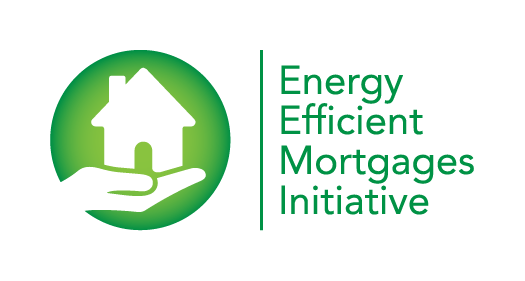

By Marco Marijewycz, International Market Manager B2C, E.ON
Improving the energy efficiency of Europe’s building stock is one of the greatest infrastructure challenges facing our generation. Europe has one of the oldest concentration of building stock in the world, with about 35% of the continent’s buildings over 50 years old. Moreover, buildings account for 40% of EU energy use, and it is estimated that the EU needs to invest around €100 billion annually in building renovations to meet its energy and climate goals.
This is why improving the energy efficiency of the EU’s existing building stock is such a key priority for the European Commission in order to protect the environment save both costs for consumers and increase energy security. By improving the energy efficiency of buildings, we could reduce total EU energy consumption by 5-6% and lower CO2 emissions by about 5%. Indeed, from an energy security perspective, it has been said that the cheapest power station you ever build is the one you don’t build. Put simply energy efficiency can be Europe’s first fuel.
There is also a clear consumer case for energy efficiency, for example according to a previous study commissioned by the UK Government, upgrading energy efficiency of their property with a move from an EPC Band E to an EPC B could enable homeowners in England to reduce their energy costs by around £380 per year on average. Moreover, for an average home in England, improving its EPC from band D to B, could mean adding more than £16,000 to the sale price of the property.[1]
But with the consumer case so clear for energy efficiency, why on the domestic property side have we seen slow progress, and what role can private finance play in unlocking an energy efficiency revolution in Europe?
There are numerous reasons for the slow uptake of energy efficiency across the domestic property stock of Europe. Whether that’s the split in incentives between landlords and tenants vis-à-vis the cost recovery of energy efficiency investments through higher rental charges, fragmented Government policy in this area, or the lack of affordable finance for property owners wishing to make energy efficiency improvements. However, it is the lack of affordable finance problem area that I wish to focus on.
Whilst EU Member State Governments have made positive strides to increase the uptake of energy efficiency through policy actions, these policy interventions have been more incentive or ‘carrot’ driven given the political risk of pushing regulatory or ‘stick’ driven interventions on the electorate. This is completely understandable. How can a Government regulate improvements to domestic properties without the confidence in the market being there to deliver on the demand policy action would create? However, on the flip side, how can the market ready itself and invest in capabilities and technology without the surety of demand what regulatory interventions provide. The reality is you can’t beat people into action with carrots, and if the sticks are not well justified then the electorate will have the Government out of office at the next election.
In sum, the real issue here is that we have been too linear in our approach to drive domestic energy efficiency uptake and not integrated enough in our actions. There has been too much reliance on Governments to make the market and there has not been enough creative cooperation between market actors from across the value chain. In short, we have treated energy efficiency as a problem for Government to solve rather than an opportunity for the market to better serve customers and citizens. However, to succeed both Government and the market need to work closely together with a clear, single focus – a ‘transaction focus’. Mortgages offer such a ‘transaction focus’ as they represent a key intervention opportunity for the message and benefits of energy efficiency to be communicated to the customer at a time when a long-term mindset is being taken. They create a moment when the customer is potentially more open to receive the benefits message, and also learn about available Government support for energy efficiency improvements.
It is for this reason that the market-led Energy Efficient Mortgage initiative (EEMI) possesses such transformational power, and offers finally a vehicle for Government policy and incentives to connect to, complement and enhance. For the first time the EEMI has brought together an eco-system of market actors with the power to act on the lack of affordable finance of home energy efficiency improvements. This initiative is convening banks, valuation professionals, energy companies and energy efficiency experts under a single mission, to create a standardized energy efficient mortgage concept for Europe. Through deep cross sector cooperation this initiative can enable the reformulation of an incentive chain to work for all market actors and most importantly, customers.
This is why E.ON is proud to be the only European energy company to be involved in this pioneering initiative. We also see great partnership possibilities with banks that mean together we can deliver customers a great energy efficient mortgage experience. Our confidence is not misplaced however, indeed as part of our role in the EeMAP project, E.ON has led the consumer research programme.
In our study supported by research agency BASIS we uncovered key consumer insights arising from Germany, Italy, Sweden and the United Kingdom which indicate a positive customer reaction to the concept of an energy efficient mortgage. In fact appeal of the concept is highest in Italy (80% very/quite appealing), followed by the UK (66% very/quite appealing), with very low outright rejection of the idea. Not surprisingly, the appeal is highest to those customers who are open to making energy efficiency improvements to their properties and to those that would consider taking out a loan to do so.
The one most important reason for finding the product appealing was the financial benefit of the product. Financing means different things in the study countries, in the UK and Sweden, it is about having access to a lower interest rate, while in Italy it is about achieving long term savings. Of almost equal importance to finance as a driver are energy considerations, namely the tangible benefit of bringing down energy bills, particularly in the UK and Italy. The emotional benefit of achieving a warm and comfortable home is a strongly recognised energy benefit in all countries.
We strongly believe that easier access to affordable financing via an energy efficient mortgage should provide an added incentive for customers to better insulate buildings, replace an old heating system or increase energy independence through solar panels in conjunction with batteries or virtual storage. For E.ON this is highly relevant because as a business we have shifted from a traditional utility business model to that of an energy solutions provider. Our focus is therefore to enable customers to live more sustainably, lower their energy bills and increase their participation in the energy system through solar and battery solutions.
Across our seven market regions and to over 22 million EU citizens in those markets we are already offering such solutions. We are therefore well positioned to enable banks to deliver an innovative and compelling energy efficient mortgage customer experience. The EEMI pilot phase presents a great opportunity for experimentation and cooperation to find the right energy efficient mortgage product formula for consumers. E.ON’s research has already shown there is demand and we are committed to participating in the pilot scheme. We are therefore very interested to collaborate with banks who have also signed up to the pilot scheme. Together we have the opportunity have real impact for people, the planet and the future profitability of our enterprises and work together with Governments and other key EU Institutions to scale up an exciting new mortgage market.
The future is now, join with us, we are ready.
[1]https://www.gov.uk/government/uploads/system/uploads/attachment_data/file/207196/20130613_-_Hedonic_Pricing_study_-_DECC_template__2_.pdf
Sitemap
Copyright © Energy Efficient Mortgages Initiative


The project DeliverEEM has received funding from the European Union’s LIFE 2023 programme under grant agreement No.101167431. The EeMAP, EeDaPP, EeMMIP projects have received funding from the European Union’s Horizon 2020 research and innovation programme under grant agreements No. 746205, No. 784979 and No. 894117 respectively
Privacy Overview
| Cookie | Duration | Description |
|---|---|---|
| cookielawinfo-checkbox-analytics | 11 months | This cookie is set by GDPR Cookie Consent plugin. The cookie is used to store the user consent for the cookies in the category "Analytics". |
| cookielawinfo-checkbox-functional | 11 months | The cookie is set by GDPR cookie consent to record the user consent for the cookies in the category "Functional". |
| cookielawinfo-checkbox-necessary | 11 months | This cookie is set by GDPR Cookie Consent plugin. The cookies is used to store the user consent for the cookies in the category "Necessary". |
| cookielawinfo-checkbox-others | 11 months | This cookie is set by GDPR Cookie Consent plugin. The cookie is used to store the user consent for the cookies in the category "Other. |
| cookielawinfo-checkbox-performance | 11 months | This cookie is set by GDPR Cookie Consent plugin. The cookie is used to store the user consent for the cookies in the category "Performance". |
| viewed_cookie_policy | 11 months | The cookie is set by the GDPR Cookie Consent plugin and is used to store whether or not user has consented to the use of cookies. It does not store any personal data. |

